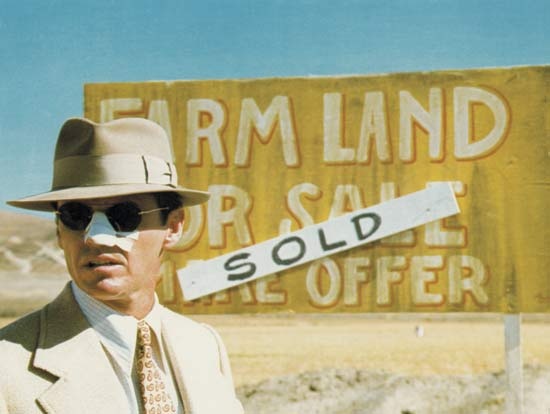Polanski, Roman
Polish film director
born August 18, 1933, Paris, France
 motion-picture director, scriptwriter, and actor who, through a variety of film genres, explored themes of isolation, desire, and absurdity.
motion-picture director, scriptwriter, and actor who, through a variety of film genres, explored themes of isolation, desire, and absurdity.Shortly after the young Polanski's family settled in Kraków, Poland, his parents were interned in a Nazi concentration camp, where his mother died. Polanski escaped internment and survived the war years by finding occasional refuge with Catholic families and often fending for himself. At age 14 he appeared on the stage, later acting in films directed by Andrzej Wajda (Wajda, Andrzej), the leading figure in the Polish film revival of the 1950s. Polanski studied directing at the State School of Cinema in Łódź. By the time he graduated in 1959, he had already directed several award-winning short films. He made the French film Le Gros et le maigre (1961; The Fat and the Lean) and then returned to Poland to direct his first full-length feature, Nóż w wodzie (1962; Knife in the Water), a tense psychological study of sexual rivalry that brought him international fame.

 After he left Poland in 1962, Polanski made several major films in Great Britain and the United States. Repulsion (1965) traces the psychotic breakdown of a young woman whose fear and loathing of sex drive her to commit several murders. The dark comedies Cul-de-Sac (1966) and The Fearless Vampire Killers, or Pardon Me but Your Teeth Are in My Neck (1967) followed. Rosemary's Baby (1968) is a thriller about a young New York City wife who unwittingly bears a child by the devil. Polanski's second wife, the Hollywood actress Sharon Tate, was pregnant when she was brutally murdered (along with four others) by Charles Manson (Manson, Charles) and his acolytes in 1969. The violence of her death influenced his next film, Macbeth (1971), a gory yet artistically effective adaptation of the play by William Shakespeare. Chinatown (1974) reinvigorated the moribund film noir genre. These films were notable for their careful buildup of mood and suspense, their subtle handling of human psychology, and their fascination with evil in its various forms.
After he left Poland in 1962, Polanski made several major films in Great Britain and the United States. Repulsion (1965) traces the psychotic breakdown of a young woman whose fear and loathing of sex drive her to commit several murders. The dark comedies Cul-de-Sac (1966) and The Fearless Vampire Killers, or Pardon Me but Your Teeth Are in My Neck (1967) followed. Rosemary's Baby (1968) is a thriller about a young New York City wife who unwittingly bears a child by the devil. Polanski's second wife, the Hollywood actress Sharon Tate, was pregnant when she was brutally murdered (along with four others) by Charles Manson (Manson, Charles) and his acolytes in 1969. The violence of her death influenced his next film, Macbeth (1971), a gory yet artistically effective adaptation of the play by William Shakespeare. Chinatown (1974) reinvigorated the moribund film noir genre. These films were notable for their careful buildup of mood and suspense, their subtle handling of human psychology, and their fascination with evil in its various forms.In 1977 Polanski was arrested and eventually pleaded guilty to a charge of unlawful intercourse with a minor. He subsequently jumped bail and fled to France, where he remained active in both the theatre and motion pictures. His subsequent films include Tess (1979), based on Thomas Hardy's novel Tess of the D'Urbervilles, Frantic (1988), a suspense film, Bitter Moon (1992), an erotic comedy, and Death and the Maiden (1994), a psychological drama adapted from a play by the Chilean author Ariel Dorfman. In 1989 Polanski married the French actress Emmanuelle Seigner, who starred in Frantic, Bitter Moon, and the 1999 mystery The Ninth Gate. The Pianist (2002), which tells the true story of Władyslaw Szpilman's survival of the Nazi-occupation of Poland during World War II, shared much in common with Polanski's own childhood experience and earned the Palme d'Or at the Cannes International Film Festival and a best director Oscar for Polanski. He followed that with Oliver Twist in 2005.
Polanski's autobiography, Roman, was published in 1984.
- Cuitláhuac
- Cuitzeo, Lake
- Cujas, Jacques
- Cukor, George
- Culbertson, Ely
- Culebra Island
- Culiacán
- Culion Island
- Cullen, Countee
- Cullen, Paul
- Cullen, William
- Cullinan diamond
- Cullman
- Culloden, Battle of
- Cullum, Jamie
- Culmann, Carl
- Culpeper's Rebellion
- Culross
- culteranismo
- cultivator
- cultural anthropology
- cultural evolution
- cultural globalization
- Cultural Revolution
- culture-and-personality studies